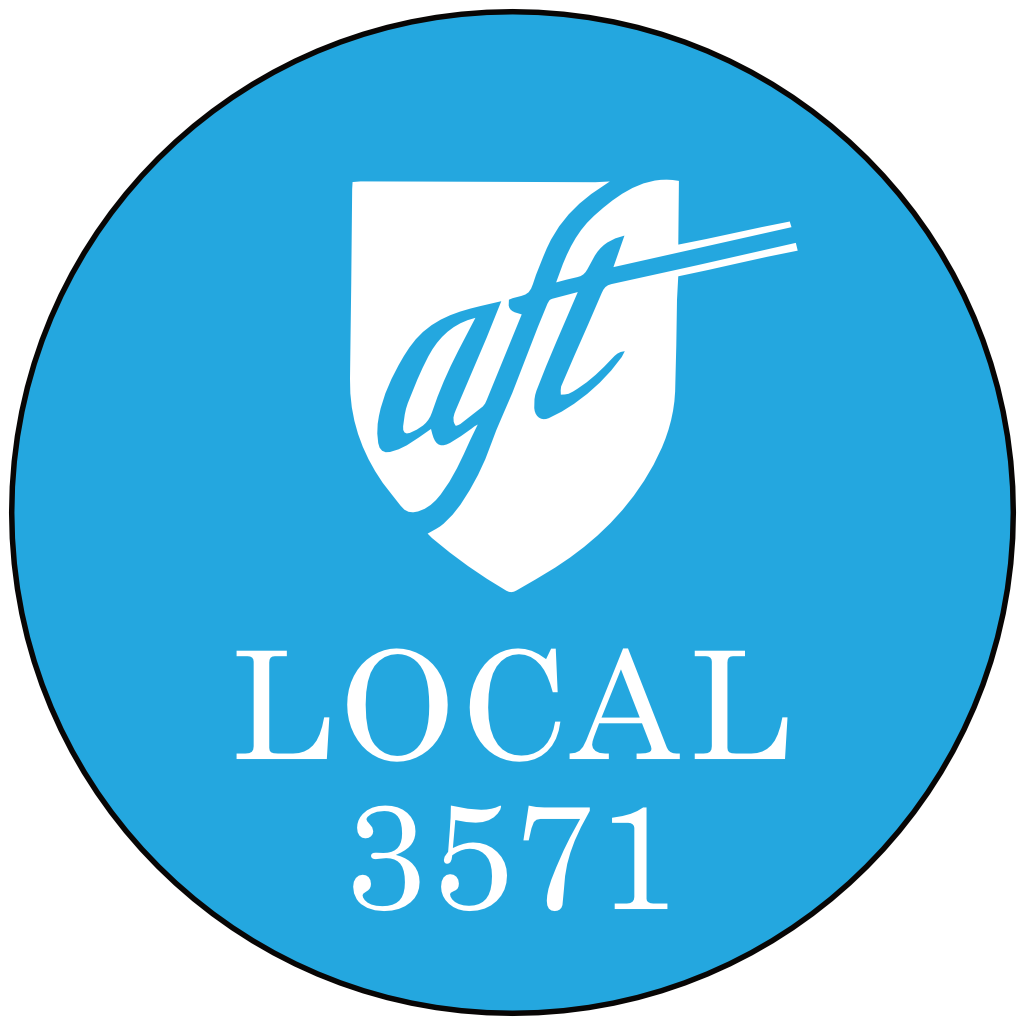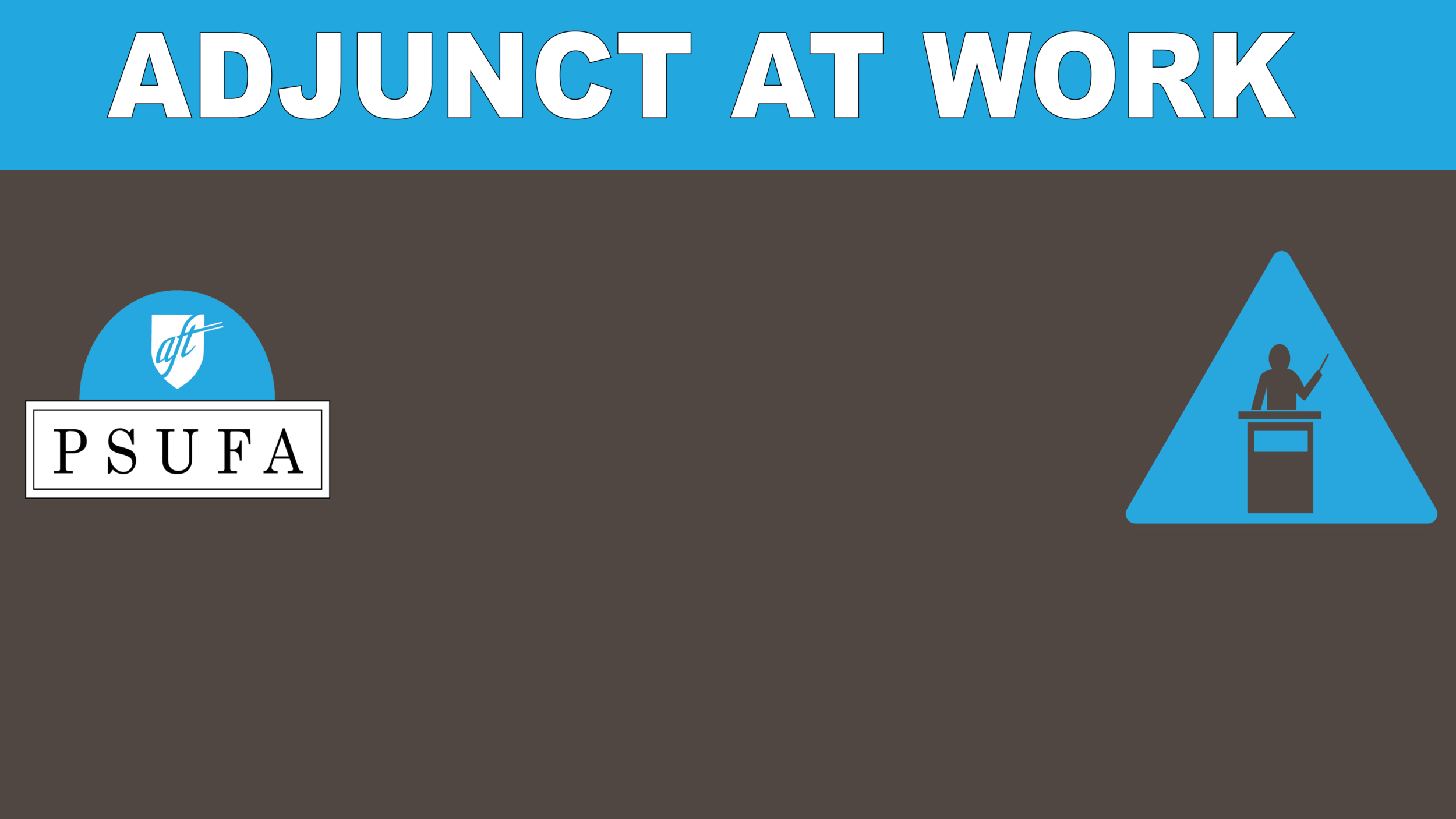After a hopefully restorative winter break, PSUFA’s bargaining team arrived back at the bargaining table for another full-day session dedicated to receiving a fair shake on the economic conditions governing our labor, our professions, and our careers. The day was mostly contentious but there were some notable victories.
Firstly, the session began with a consensus check and tentative agreement on Articles 3 and 4. Article 3 now incorporates the language of House Bill 2016, which requires PSU to provide contact information for new adjuncts. This allows us to better organize and help our new members get situated. Article 4 sets up an orientation event for all new adjunct hires. This is something that PSUFA has sought for years since many adjuncts are offered little information about how to connect with their campus community. We hope these victories will help our union grow and offer us a chance to foster a sense of belonging at PSU for new employees. It was a positive note prior to the more thorny negotiations later in the day.
Another bright spot at the table was potential access to the so-called staff fee privileges that are currently available to full-time employees. This would allow some adjuncts and their family access to taking courses at Portland State for a significantly reduced cost.
Our presentation of an updated economic package and the continued discussion around compensation and adjunct inclusion in departmental meetings dominated the rest of the day. Our package was a response to last session’s bargaining, but we made sure to present it in context. Firstly, $30 million in additional federal relief has been slated for PSU, and Governor Brown’s recommended budget contains no major cuts for higher education. We then reminded Admin of the importance of adjunct labor to PSU’s financial health. We relayed the fact that adjunct faculty are paid approximately $1 of every $4 in revenue we generate. (Revenue generated from adjunct-led classes is approximately $60 million; expense to the university is around $15 million per academic year.)
Startlingly, and without a rationale we could determine, PSU counter-offered an economic package totalling less money than the package they presented in mid-December. This seems both punitive and verging on regressive bargaining. “Regressive bargaining,” or regressive proposals during bargaining, is when one party makes a proposal that is less advantageous to the other party than a preceding proposal. This is unlawful at worst and bad faith at best, and we will not tolerate this tactic.
Within our updated economic package, PSUFA continues to demand PSU put money behind our stated and shared interest in greater adjunct inclusion in departmental meetings, activities, and governance. PSU insists simply encouraging departments and educating our supervisors will be sufficient. The reality of past efforts of adjunct inclusion—specifically the perceived exploitation when department’s “require” inclusion without offering extra-instructional wages—illuminates PSU’s offer as well-intended but not meaningful or realistic. PSU Departments are already operating under increasingly tight budgets, and encouraging inclusion with no meaningful offer of support, or recognition of PSU’s fiscal responsibility, is not tenable. We will continue to push for this shared goal.
Discussion also continued on PSU’s offer of a “Length of Service” pay, compared to PSUFA’s suggested $10/credit pay raise after every two years of continuous teaching. PSU countered, instead, with a one-time bonus of $100 for less than five years’ service, $250 for five to 10 years, $400 for 10 to 15 years, $550 for 15 or more years. Adjuncts who have been serving their institution for years, many for decades, deserve continued pay increases and not a one-time pay-off. PSUFA, however, will not dismiss this offer entirely as “money is on the table” but we are committed to building a more equitable and sustainable pay structure. For example, with regard to minimum adjunct salaries, the current rate is $1043/credit. PSU suggests a raise of $50/credit split over two years (Fall 2021 and Fall 2022). PSUFA suggested a $35/credit increase in Fall 2021, and $25/credit increase in Fall 2022.
In the next bargaining session we will continue to point out the gaps between their values and their actions. Our demands are simple and we will not shy away from our desire for fair compensation and greater inclusion, interests they claim to share. We deserve no less.
Our next bargaining session will be Friday, February 5 from 9 a.m. to 5 p.m. Please join us as an observer! Sign up here.











